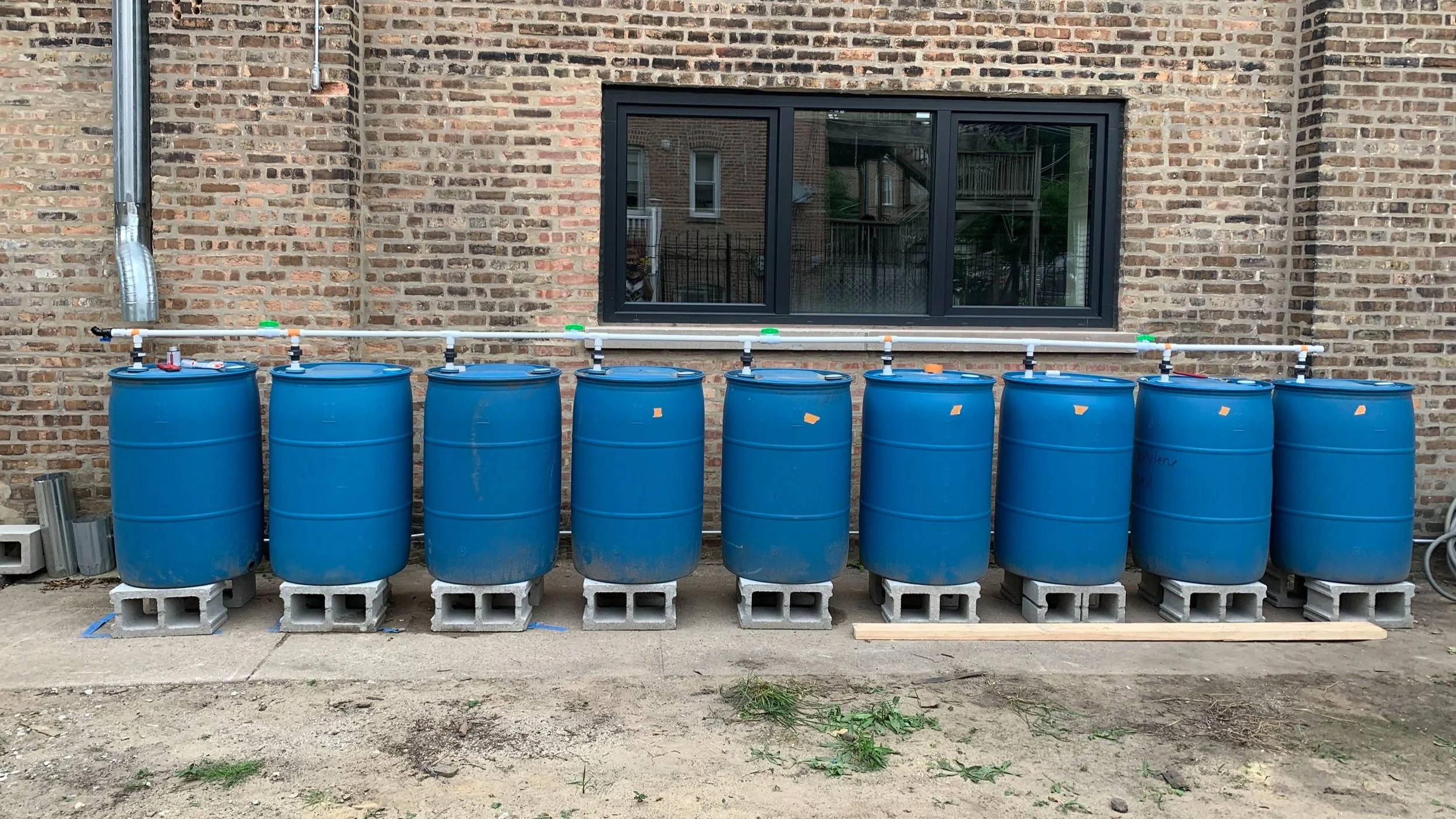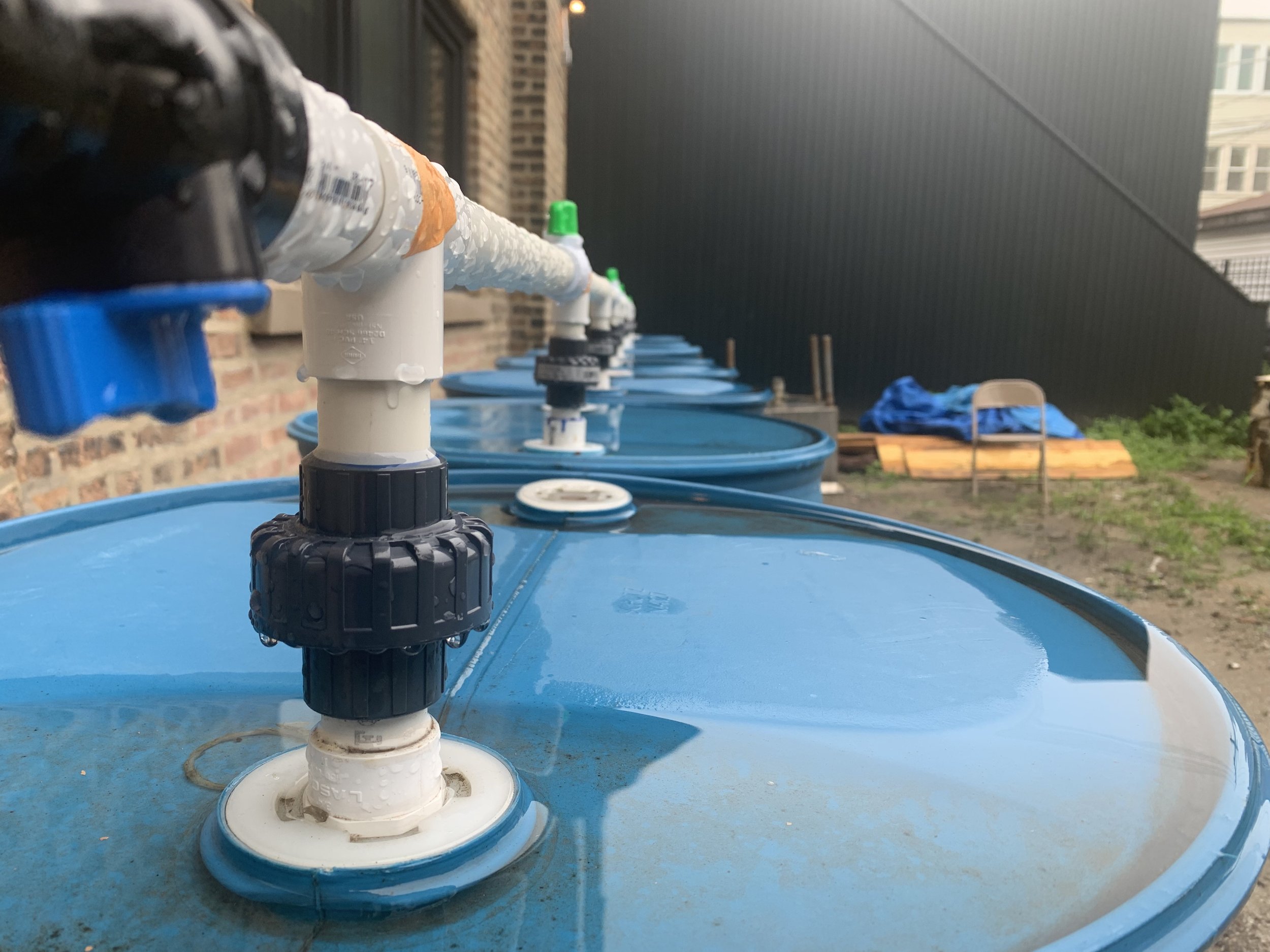New Additions to Narrow Bridge: Recycling Water
Part of Narrow Bridge Art Club’s commitment to carbon neutrality and environmental care is the reuse of materials, both man-made and natural. One element of this process is setting up a rainwater catch system, mainly used to care for the garden out front.
A rainwater catch system, in this case, made of a series of water collection barrels connected by pipes and valves directing water to a spigot, collects rainwater so it can be reused later. The barrels themselves are reused food-grade fifty-five-gallon barrels, so the construction requires as little new material as possible. While it cannot be used for drinking water, it can be used for garden irrigation, car washing, cleaning outdoor supplies, and other activities that don’t require filtered water. This system is similar to a greywater system, which functions in the same way but instead collects and reuses greywater — water that has been, what I would call, “lightly used” for things like showering or washing dishes. One of the main benefits of these types of gravity-fed systems is that once set up, they are self-sustaining, requiring no electrical input and little adjustment. The lack of maintenance or consumption of new resources makes these a long-term environmentally friendly solution.
As a Narrow Bridge intern helping with but not leading the construction of the rainwater catch system, I was surprised at how accessible the making of this system felt. We were able to put together all the necessary parts with two people, although it’s possible with just one, and followed instruction manuals showing how to set them up. Environmental solutions are often presented as inaccessible and far away, which can encourage inaction, hopelessness, and sympathy for large environmentally damaging institutions. However, seeing various stacks of materials become a functioning water recycling system over a few days was a reminder that there are existing solutions that can be implemented right now to address concerns over issues such as excessive consumption and energy conservation.
Written by Theo Luna Baker-Stohlmann


